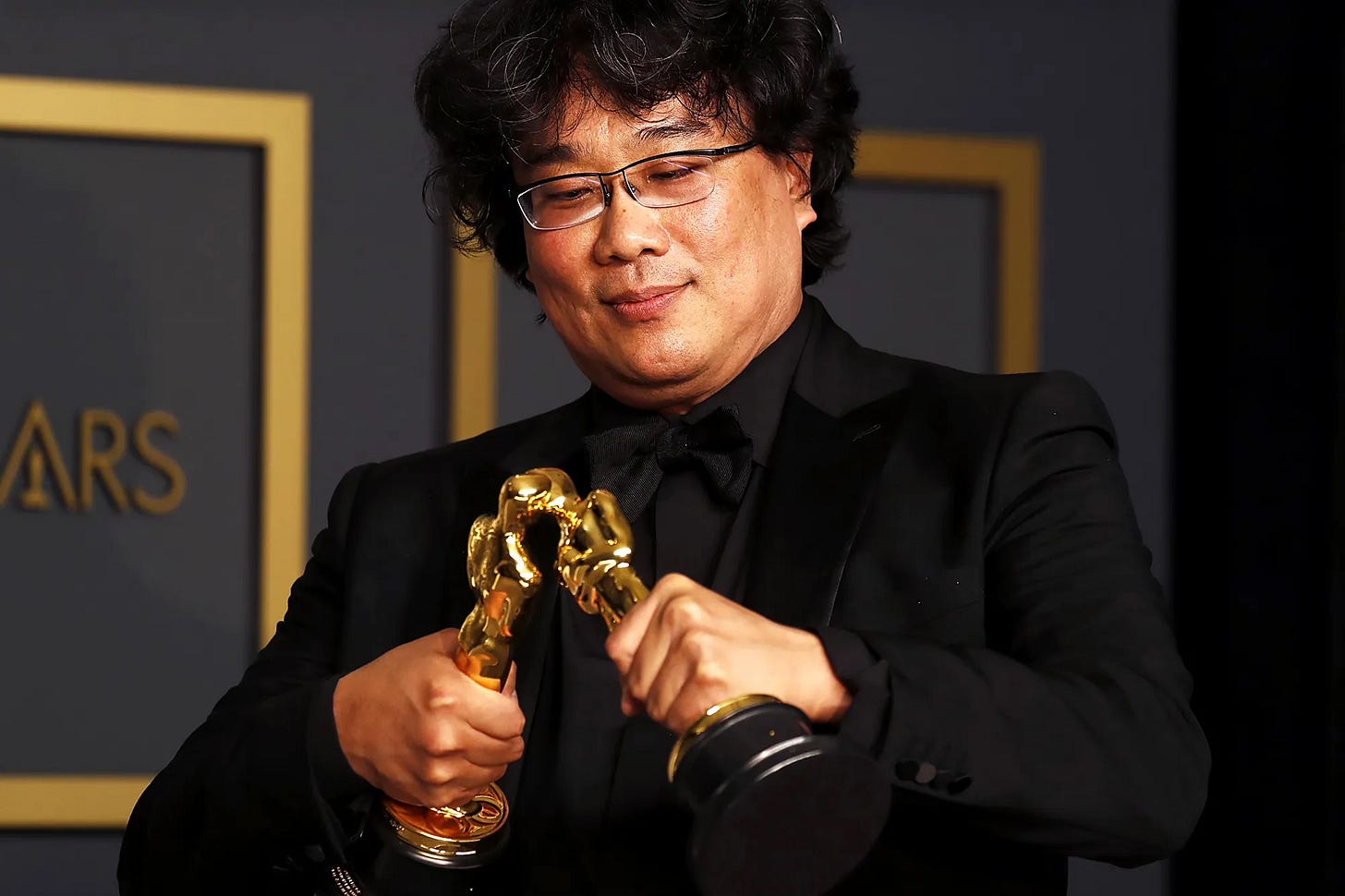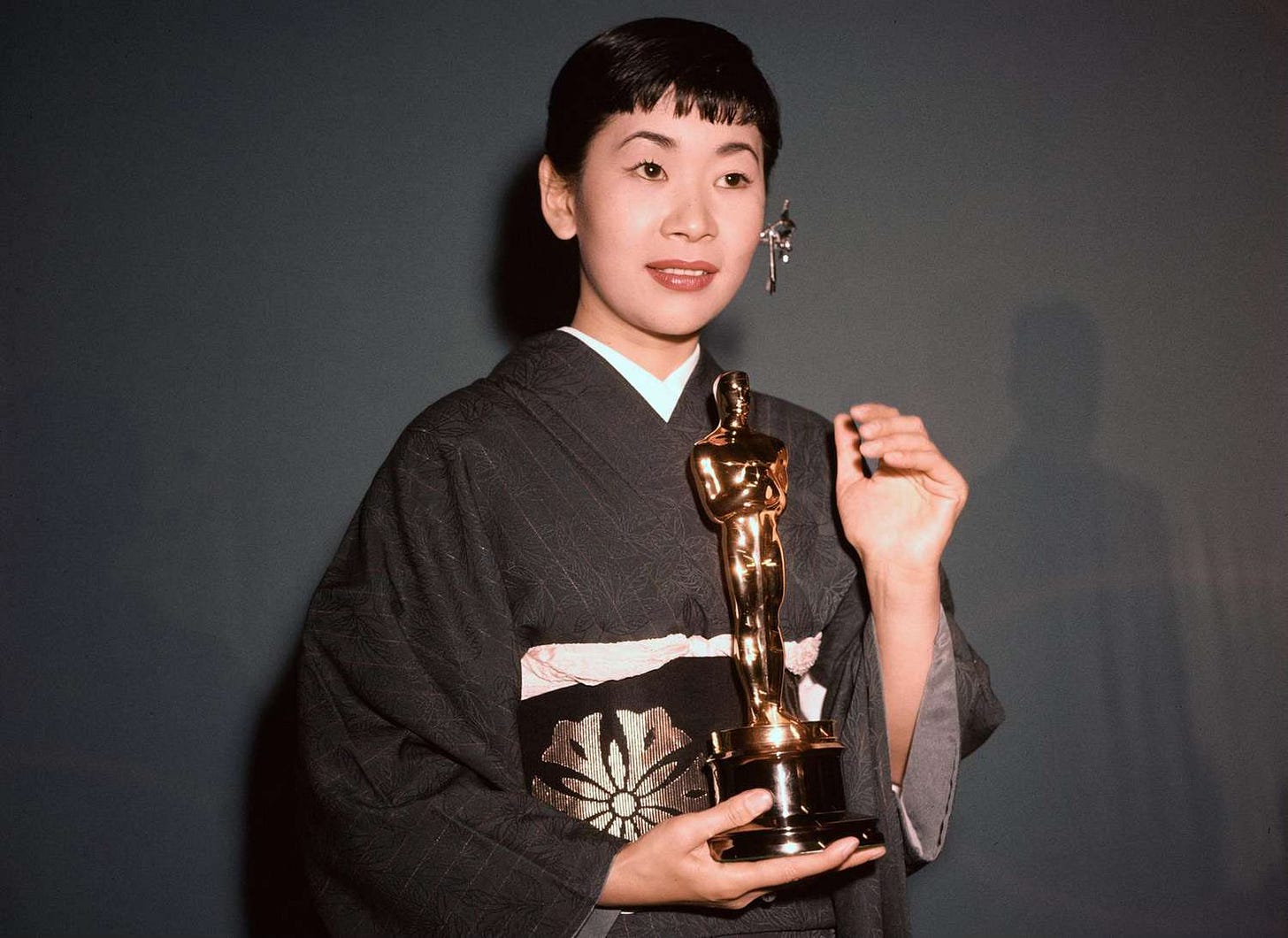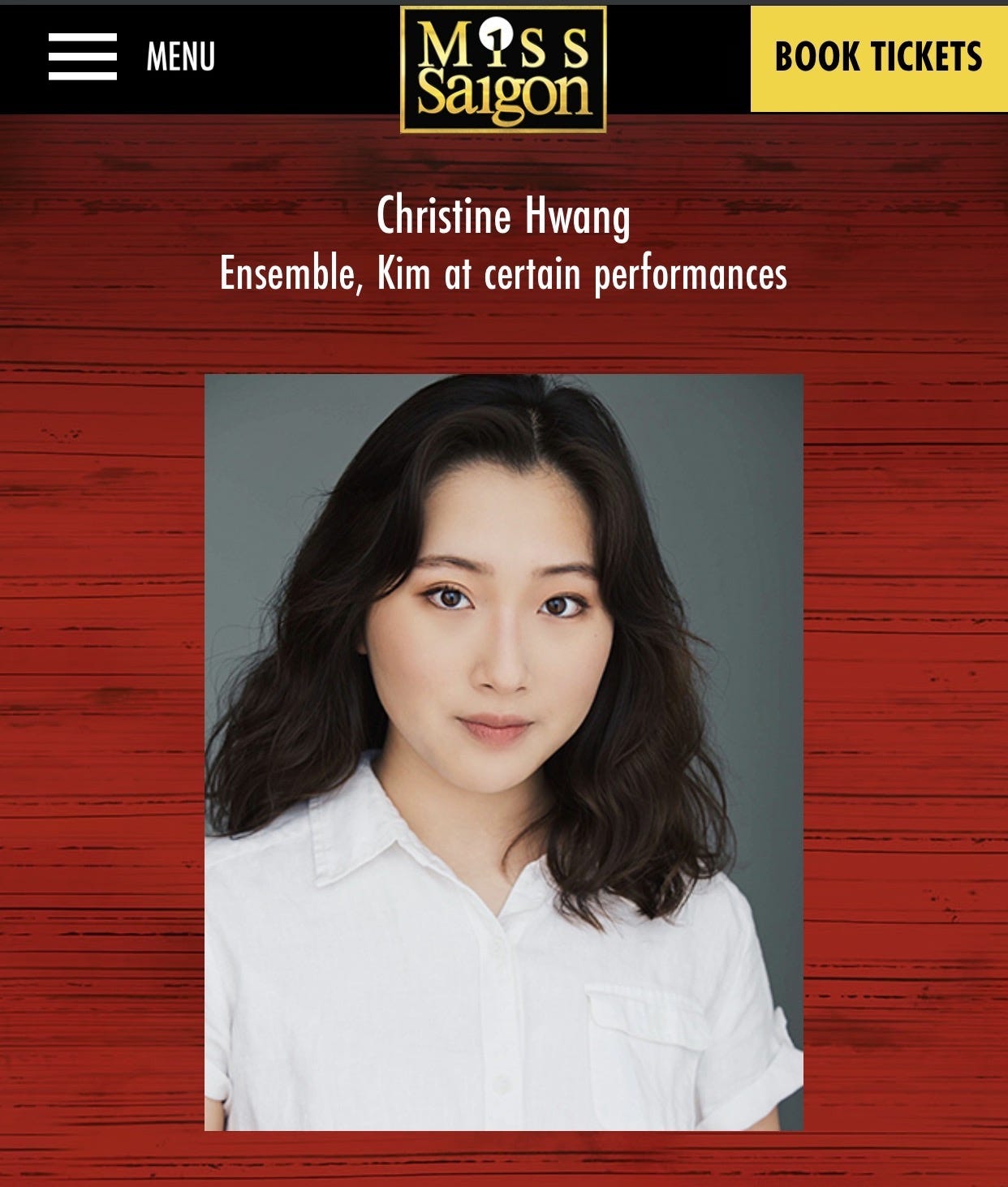Heesun’s Table #22: Those Are Two Different Asians
An unprompted venture into Asians in Hollywood, and why I didn't want to be an "Asian-American actor."
Rashomon had an early evening show at Film Forum this past Sunday. A first time watch, Rashomon also marked my third Kurosawa film, each one viewed at Film Forum, respectively. Seven Samurai and Ran were the other two I’ve caught, and if you really want to know my ranking, I’d place Rashomon as a light second place to Seven Samurai, Ran in third.1
As I made my way through the lobby, I stopped to view the display advertising the remaining Kurosawa screening dates. (There’s a great deal left, and if you can make at least one, please do.)
Soon after, I was joined by two white men. They began to make small conversation at the poster, one of them pointing at a still of an actress, saying to their friend -
“Isn’t that the same actor from Rashomon?”
The friend responded,
“Yes, it is.”
Instinctively, I lifted a brow. No, it was not.
They were pointing at a still from Ran, of Mieko Harada’s enormous gaze, only to misidentify her for the recently viewed performance by the captivating Machiko Kyō. One might pass this as a simple mistake - people confuse actors all the time! Even the white ones!
Still, the comment didn’t sit well with me. How could they not deduce that Kyō was not, in fact, a very different looking Japanese actress on the poster board? I guess they both didn’t have eyebrows?2 Is that where their confusion came from, and not the Asian thing? Mentally hoping that that was the case for the mix up, I silently pushed past the men, holding an offense for both Harada and Kyō.
Writing this now, I find their mistake even more impressive, as the actors’ names were credited under each still.
Hollywood and Asians don’t mix well together. Like oil3 and water, the two have danced around each other with minimal effort to fully embrace unless submission and subtitles are involved. With the recent rise of K-POP Demon Hunters, I’ll add song and dance, specifically of the K-POP variety. Yeah.
Of course, there has been progress made. I still tear up when I see photos of the infamous Oscar wins for Michelle Yeoh and Ke Huy Quan’s Everything Everywhere All At Once performances. Who didn’t feel a swell of childlike joy when that photo of Bong Joon Ho, post Parasite sweep, made rounds on the internet?
Even so, the numbers remain as cold blooded as ever. (Funnily enough, I wrote about this years ago in my first college article.) Asians, American or otherwise, have yet to break through the mainstream of Hollywood. Over the past fourteen years, API characters have made up less than 8% in each and every category: leads, co-leads, supporting, and minor roles. These API characters were also more likely to be female. Some argue against the validity and merit of awards, regardless, it is still reflective of the current state of Hollywood. From the beginning of the Oscars to 2023, Yeoh and Quan’s winning year, there had been 1,808 Academy Award actor nominees. Twenty three of those nominees could be identified as Asian, and six, including Yeoh and Quan, have won.
Yeoh remains the first Asian actress to win an Oscar for Best Actress and the third Asian actress to win in an acting category overall. Youn Yuh-Jung won in 2020 for her supporting role in Lee Isaac Chung’s Minari, bridging the gap since Miyoshi Umeki’s historic win in 1958 for her supporting role in Sayonara.
Quite honestly, I have moved through my professional career with blatant ignorance. It is easier to turn a blind eye than witness just how messy it can be for API artists who pursue a life in the entertainment industry.4 Earlier in my career, I’d publicly denounce certain productions, saying I’d never take on roles like Kim in Miss Saigon, that I’d never subject myself to being an “Asian-American actor”. All I wanted was to be an actor, without putting the Asian in front of it. If white actors could do that, why couldn’t I? I held a genuine belief that my merit and talents alone were enough to be above such debased generalizations - finding inspiration from performances by Florence Pugh, Jodie Comer, Renate Reinsve, and Olivia Coleman. Somehow, I believed I was like them - that I was above putting the emphasis on the “Asian-American” of it all.
I wasn’t.
Seven years into my professional career, I have had to play these roles. I would not have the career I have now (granted, a largely commercial one) if I did not. Only recently has the industry, albeit slowly, shifted towards “open ethnicity” casting calls, and of seeing API actors in roles outside of their respective race.5 In moments like these, I think of the many API actors before me who have had to play these roles their entire lives - unable to work unless their race was explicitly involved and, usually, exploited.
Personally, I am coming to understand that most of my acting and subsequent "success" has revolved around being the best actor white people want me to be. You could blame it on conservatory training, or the fact that this is an industry created for and dominated by white people. I’m not interested in having that conversation, though, as that has been well known and far better documented by people who have done their homework, and then some.
What’s more unsettling has been the recent discoveries of just how deep whiteness permeates my work and wellbeing. Lately, I’ve noticed that most of my imaginative work as an actor has been through the white lens. Shocking, I know! Let me be more specific. Whenever I was preparing for a role, I’d tend to visualize it from multiple perspectives. If I really struggled with conveying a certain experience, I’d visualize the scene as if I were in the audience, watching the performance.6 It wasn’t until a few months ago that I realized I was visualizing white women performing these roles. Never once did I imagine watching myself, or an actor who looked like me, performing. It was always a Pugh, Comer, or Reinsve - never a Yeoh, Youn, or Umeki. It was always a white woman, an “actor”.
How harrowing, I thought, to completely remove such iconic actors from my own understanding of the cinematic world I so desperately wanted to be a part of. Actors whose accolades stand as pillars, that cement the validity of API experiences. Their performances have proven our dimension as people in an industry that chooses to flatten us. An industry that has historically pilfered us for our cultures, identities, and traumas, as a means for entertainment. The Yeoh’s, Youn’s, Umeki’s of this industry are the reason for my ability to even take part. I was witnessing my own ignorance, fears, and insecurities completely erase the tiresome labor of those before me - labors that have only wanted to improve upon mine and many other API peoples’ place in this world.
Late that Sunday evening, I went down various internet rabbit holes about Asians and Hollywood, dumbfounded by how little I knew. This is all in thanks to those two white guys who couldn’t tell the difference between Harada and Kyō, on a random Sunday at Film Forum.
Then I wrote a list, of API actors spanning the 20th and 21st century. It is long, much longer than my own shortlist consisting of Bruce Lee, Lucy Liu, and Toshirō Mifune. With such an extensive list, I’ve decided to catch up and do some of my own homework. Learn about the people before me, put some well deserved, incredibly delayed respect on their names! I’ll be sharing my findings here at the Table.
Here’s to the Harada’s and Kyō’s. The Yeoh’s, Youn’s, Umeki’s - and the many that will follow.
I blame this mostly due to the fact that I’m not a huge fan of King Lear.
OG bleached brow, to be honest.
..or should I say snake oil? Kidding. Sorta.
It goes without saying, Broadway has been particularly disappointing this summer.
This really should be “races”. I’ve played a Vietnamese woman as a Korean, after all. We’re in such a state of painstakingly slow progress that it remains - API actors play an assortment of different Asians.
This isn’t for everyone, but it is for me. Sorry, conservatory friends!







